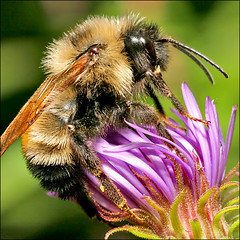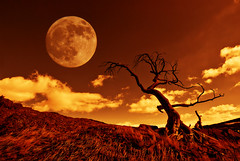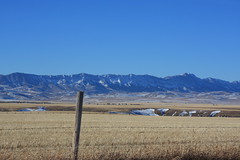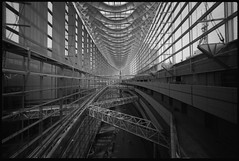On that Tuesday morning, I was in the air, on a flight from San Francisco to Denver, the first leg of a trip to Boston on business. I was excited – it was a client I had been looking forward to working with, and it seemed like an exciting opportunity. The flight was mostly empty and I had the luxury of a Bulkhead seat on a 777 – the middle section of my row was my kingdom to command, at least until Denver.
I don’t know where we were (probably near Tahoe) when the plane made a hard and very sudden turn away from the direction we should have been traveling in. All the passengers on this mostly empty flight (remember those flights?) seemed to get a quizzical look on there faces. This turned to concerned looks on our faces when the pilot came on the intercom to announce that the flight had been diverted to Sacramento in response to a “National Security request”.
Through the remainder of the short flight to Sacramento, it was clear that the flight attendants were visibly shaken (it was a United flight) and were having a hard time holding it together. Professional to a fault, they graciously brought me an extra yogurt when I asked. I had no clue.
The landing in Sacramento, an airport that was just barely long enough to accept a 777, is one that I remember to this day. As soon as the wheel touched the tarmac, the brakes screamed and reverse thrusters howled, the pilots trying to bring a “heavy” plane to a stop on a runway that was nominally rated for the beast they were bringing in.
We were still unsure what had happened, but the few of us who had the limited Web available on our phones were reading very conflicting and inaccurate news items. The flight attendants asked us to put them away, but for once they were doing it for optics, knowing full well we wanted to know what was going on as much as they did.
Outside the windows, planes of all stripes and sizes, from airlines I had never heard of or only seen in the air on approach to SFO. And clearly, there were two problems.
- There were no gates for us to pull up to.
- When we pulled to stop, the ground crew looked at us with dazed looks, going “How the hell do we offload a 777?”
We finally staggered off the plane, via a 60s style airplane ladder. By this time, the flight attendants were crying and holding each other. It wasn’t until later that I realized that they had all lost friends on the planes.
After this process, the few of us streamed into the Sacramento terminal, headed for the baggage carousels. It was then that we saw the first tvs.
The line of passengers briefly stopped in shock. A few of them peeled off to the bar, where it was clear that the drinks were on the owner. The rest of us grabbed our bags and shuffled out of the terminal.
I called my wife and got through to our house on the second or third try. My mother-in-law, who was visiting, picked up the phone. I said I was alright, and asked to speak to my wife. SJE picked up and I told her I was on the ground in Sacramento and I was alright.
She was clearly confused and asked why I was calling. Our youngest was only a few months old, and sleep was at a bit of a premium. I knew she would have had no clue, and told her to go turn on the tv. Five minutes later, she called back and, in a clear but very stressed voice, told me that she was going to come and get me.
By that time, I told her that it was completely unnecessary. By an act of organization that has amazed me and endeared me to United until this day, they had arranged for a bus to come to the Sacramento terminal and take us back to SFO.
The bus ride was surreal. Completely quiet, except CNN radio. No one spoke. No one spoke on cell phones. We were all processing what we thought had happened, as CNN Radio tried to do the same.
The bus arrived back at SFO, making us some of the few who at least got back to where we had started our day. We gathered our bags, and shuffled off to wherever we were going to go. In an eerie silence.
Coming down the stairs from the top level of the airport, I saw the pandemonium at the ticketing counters as thousands of people desperately sought a way to get somewhere – home, away, flee. I was lucky. I got to go down to the arrivals area and wait.
I was picked up by SJE about 20 minutes after I got off the bus. As we headed home, south on 101, we watched a lonely aircraft descend out of the crystal blue (ok, it’s the Bay Area – gray brown) sky. It was clearly one of the final flights to land at SFO that day. The 747, a plane from one of the major Asian national carriers was a glorious sight as it approached. But then we noticed the frightening parentheses that summed up the day – this glorious feat of engineering was bringing its passengers in accompanied by two F-16s.
We heard the roar of the fighters peeling off as the 747 put its wheels down behind us. And, as we drove, the great silence began.









